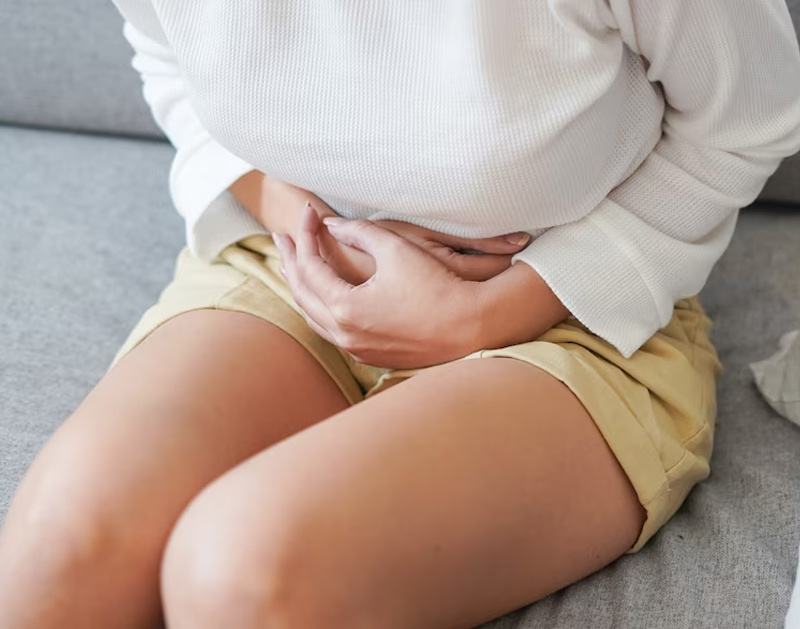
Abdominal bloating is a condition that affects most individuals due to various reasons. It can cause a tight sensation accompanied by pressure and fullness in your abdomen. Usually, it does not show any visually noticeable swelling or a distended abdomen, but the feeling of discomfort may range from barely irritating to excruciatingly agonising, says Dr Girish SP, Lead Consultant-General and Gastrointestinal Surgery, Aster RV Hospital, Bengaluru, adding that it normally fades away in time, and can recur in some people.
Table of Content:-
In an interaction with the OnlyMyHealth team, Dr Girish explains why abdominal bloating occurs, symptoms to expect simultaneously, and ways to prevent it.
Prevalence Of Abdominal Bloating

According to Dr Girish, about 10-25% of normally healthy individuals report having periodic abdominal bloating. Up to 75% of people report that their symptoms range from moderate to severe, and 10% of people claim to have it on a regular basis, he says, adding that it could be as high as 90% among people with Irritable Bowel Syndrome (IBS).
Also Read: Experiencing Diarrhoea And Other Digestive Issues? It Could Be SIBO; Know What It Is
As per a study published in the Journal of Neurogastroenterology and Motility, abdominal bloating is a common symptom affecting up to 76% of patients with functional gastrointestinal disorders (FGIDs) and 6–13% of the general population in Western countries. FGIDs are a group of medical conditions characterised by chronic or recurring gastrointestinal symptoms without evidence of structural or biochemical abnormalities. Common examples include irritable bowel syndrome (IBS), functional dyspepsia, and functional constipation.
Another study published in the Journal Clinical Gastroenterology and Hepatology found a prevalence rate of bloating ranging from 16% to 30% of the US population, with women and those with GI disorders experiencing more frequent and severe symptoms.
Common Cause Of Abdominal Bloating

“Constipation is a typical contributor to bloating,” says Dr Girish. This is because one of the symptoms of constipation is having fewer bowel movements than usual. The longer your stool remains in your colon, the longer it takes the bacteria to ferment it, which can lead to abdominal fullness, gas, and bloating. “Even if you have regular bowel movements, you could still remain constipated,” he adds, sharing other constipation signs and symptoms:
- Struggling to begin or complete a bowel movement
- Stool that resembles pebbles and rocks
- Feeling full even after a bowel movement
Dr Girish also notes that bloating can occur both before and throughout the menstrual cycle for up to 75% of women. Bloating during menstruation is attributed to hormonal fluctuations, specifically elevated levels of progesterone, which can lead to water retention and gastrointestinal changes. These hormonal shifts can slow down digestion, cause gas accumulation, and result in abdominal bloating and discomfort.
According to a study published in the Journal BMC Women's Health, 31% had multiple primary gastrointestinal symptoms, either premenstrually or during menses. The paper says, "The prevalence of each GI symptom was similar across the two phases, with abdominal pain and diarrhoea being the most common primary symptoms, and the secondary GI symptom of bloating being experienced most frequently overall."
When Is Abdominal Bloating Serious And Why You Shouldn’t Ignore It
The more serious causes of abdominal pain and bloating is why you must address any discomfort. These include:
Sensitivity in the gut: According to Dr Girish, people who suffer from IBS may be particularly sensitive to gas, which can result in discomfort, cramps and diarrhoea.
Small intestinal bacterial overgrowth (SIBO): Normally healthy individuals have comparatively little bacteria in their small intestines. SIBO is a condition where an excessive amount of bacteria accumulate in the small intestine, disrupting the normal digestive process. People who have IBS with diarrhoea, intestinal surgery or both are more likely to have SIBO, which can result in bloating.
Gastroparesis: This disorder results in delayed emptying of the stomach, which can lead to bloating, nausea and even bowel obstruction.
Gynaecological conditions: Bloating can occasionally be brought on by gynaecological diseases, such as issues with your ovaries or uterus. Dr Girish recommends getting a pelvic check-up from a gynaecologist every year.
Also Read: Why You May Experience Heartburn And Diarrhoea During Periods: Do's And Don'ts
Symptoms That Comes Along With Abdominal Bloating

Abdominal bloating is not the only symptom you experience when you have a digestive issue. You could also experience regular burping, belching or belly rumbling or gurgling. Severe bloating may be accompanied by other troubling symptoms, like:
- Blood in stool
- Noticeable loss of weight without exercising or other activities
- Vaginal bleeding (between periods or in post-menopausal women)
- Nausea and vomiting
- Diarrhoea
- A worsening case of heartburn
- Fever that is caused by an infection
Prevention Is Key
Here’s how you can prevent abdominal bloating:
- Drink adequate water as it will promote motility throughout your digestive tract and break down the food and make it easier for it to move
- Exercising can keep your bowels working and helps reduce water retention
- Do not eat anything processed as they are low in fibre and rich in salt and fat
- Take your time, chew each bite of food completely, and avoid overeating
Conclusion
Bloating can become a serious issue if you leave it untreated for a long time. It is important to make proper lifestyle choices and avoid triggering foods that lead to it. Recognise the cause of your symptoms and consult a healthcare professional for effective treatment.
Also watch this video
How we keep this article up to date:
We work with experts and keep a close eye on the latest in health and wellness. Whenever there is a new research or helpful information, we update our articles with accurate and useful advice.
Current Version
